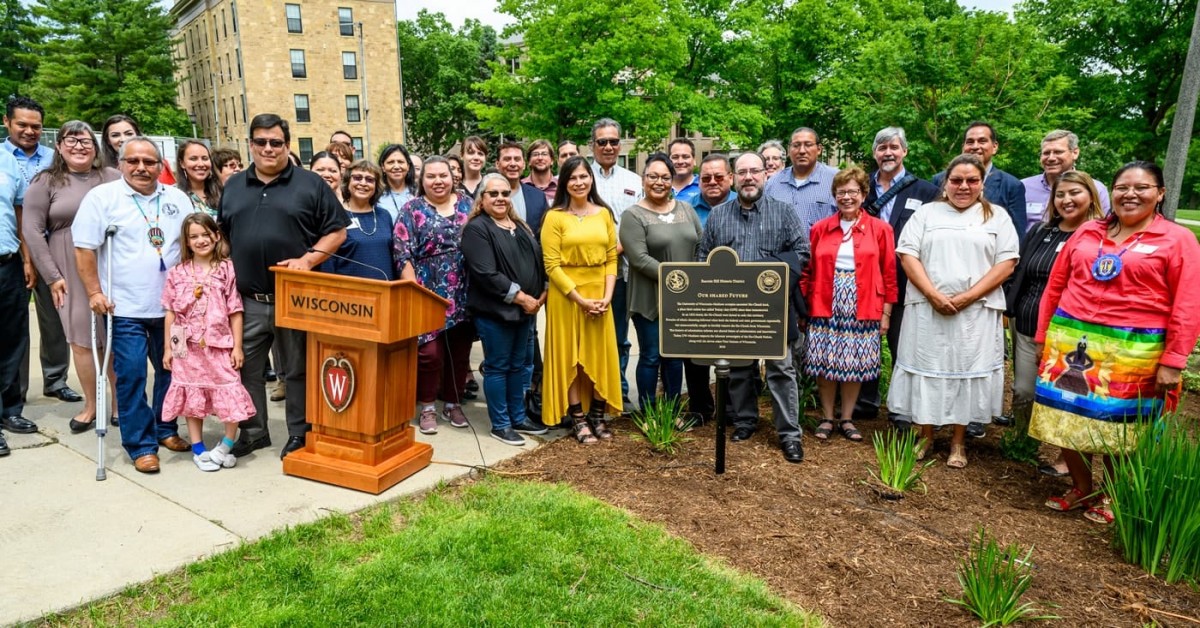
The Wisconsin Energy Institute occupies ancestral Ho-Chunk land, a place their nation has called Teejop (day-JOPE) since time immemorial. In an 1832 treaty, the Ho-Chunk were forced to cede this territory. Decades of ethnic cleansing followed when both the federal and state government repeatedly, but unsuccessfully, sought to forcibly remove the Ho-Chunk from Wisconsin.
We acknowledge the circumstances that led to the forced removal of the Ho-Chunk people, and honor their legacy of resistance and resilience. This history of colonization informs our shared future of collaboration and innovation. We recognize and respect the inherent sovereignty of the Ho-Chunk Nation and the other eleven First Nations that reside in the boundaries of the state of Wisconsin.
Tribal Nations are doing some of the most important and leading work in transitioning away from fossil fuels toward a sustainable, resilient, and an affordable energy future that is centered on social and economic equality. Here are just a few of the countless projects around the Midwest that are being led by tribal nations:
- The Midwest Tribal Energy Resources Association is a non-profit intertribal organization comprised of Midwest Tribes who are planning and pursuing innovative Tribal energy projects that respect the sovereignty and unique culture of individual member Tribes, while leveraging the collective strength and resources of all Midwest Tribes.
- The Forest County Potawatomi Community is seeking approval for three solar projects in Wisconsin, including an install of 848 solar panels in Milwaukee, after receiving a $1 million grant — which it will match — last year from the U.S. Department of Energy. With these three new projects, the Potawatomi community would have a total of 3.5 megawatts of solar power.
- The Bad River Band of Lake Superior Chippewa also won a $1 million grant from the U.S. Department of Energy for a solar-plus-storage project which will include 520 kilowatts of solar at three tribal buildings in Odanah, Wis.
- About 30 miles outside of Minneapolis, Minn., the Prairie Island Indian Community is creating an energy system for the Tribe that results in net-zero emissions.
- Honor the Earth is a non-profit organization founded to raise awareness and financial support for Native environmental justice and to develop needed financial and political resources for the survival of sustainable Native communities.
- 8th Fire Solar, operated by the Anishinaabe, is a solar thermal panel manufacturing facility in Ponsford, Minn., that provides high-quality, efficient renewable energy technology for heating homes and small businesses.
- The Winnebago Tribe of Nebraska is a solar power leader on the Plains having installed nearly 1,000 solar panels since 2008, saving the tribe $100,000 per year in energy costs.
For more information on UW–Madison's shared future with the Ho-Chunk People see this article.
